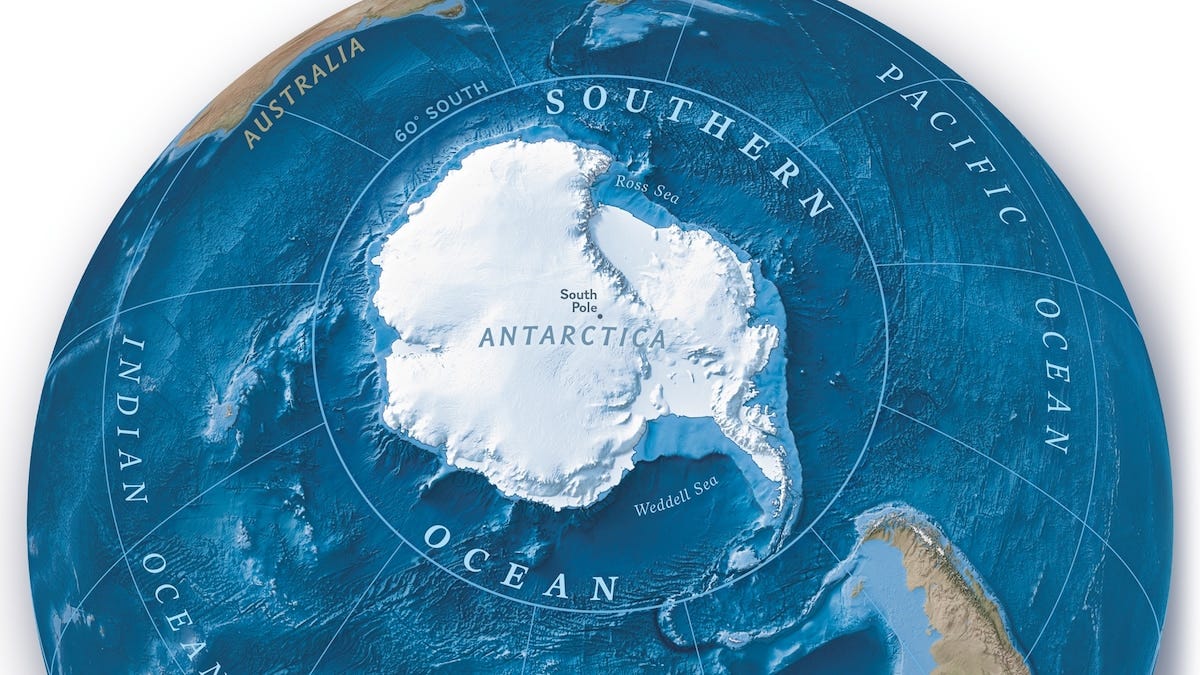the Empathy List #68: Is the Bible literally true?
What the Evangelical Church Never Taught Me, Part 7
Hey friend, Liz here.
As I work on book #2, furiously tapping away at my desk while my kids run laps at day camp, I’ve been thinking about evangelicals’ emphasis on the inerrancy of the Bible.
Biblical inerrancy, to us, is the idea that every word of the Bible, exactly as it has been written, from every angle, is always true in every way.
I suppose it won’t surprise you to hear that I find this reading of the Scriptures problematic.
For within the onionskin pages of the Bible, there are glaring problems.
To be clear, I am not a novice when it comes to the Bible.
I have mined the ancient pages over decades—out of love, intrigue, guilt, delight, and confusion. For most of that time, I’ve been floating within the rushing waters of nondenominational American evangelicalism (though I’m currently swimming laps in the pool of Anglicanism). I even graduated from the Harvard of Christian universities, where I studied the Bible alongside distinguished religious scholars who speak the language and culture of the book better than anyone.
Even so, I often find the Testaments—especially the oldest one—inscrutable. I believe this is a common experience. I can prod at the words hard with my fingers and elbows and still only manage to wrest the smallest fraction of meaning from the cuneiform letters.
(Where’s the FAQ, the index, the annotated bibliography? Where’s a good editor when you need one?)
Still, I cannot look away, especially from that hazy past we Christians call the Old Testament: the eras of patriarchs, genocide, drought, child sacrifice, polygamy and an array of gods for every occasion. Which is to say, the problems with the Bible start at the book’s very beginning.
Genre plays a role in the inscrutability of the Biblical texts—because Poetry cannot prove a single thing, not with all those metaphors cluttering the textbook account of the creation story, for example, as if poetry could ever have been deployed to disabuse Stephen Hawking of his nihilism. ;-)
And then there’s the narratives of unbelievable happenings, like those tricky miracles that Thomas Jefferson once painstakingly excised from the gospels with a pair of scissors, in order to extract that guru ethic from the man who was Jesus.
Another problem? Science.
Take Moses’ creation account of Genesis, which appears to have ignored the observable natural history—geology? radioactive elements and half lives? the actual nature of the universe?—and, to boot, resembles other creation narratives of the ancient near east too closely, in a way that makes readers uneasy.
(Is Genesis a copy of one of those accounts, or is it merely iterative? If it’s iterative, can it still be true? What percentage of truth in a story makes it trustworthy?)
Obviously, I am a contemporary American reader, not an ancient near eastern scribe, and I can shed very little light on Moses’ authorial intention.
Worse, I am a woman, not a patriarch; a Christian and not a Jew; and I am practically pagan compared to those desert fathers and mothers who balanced naked on poles in the Iraqi desert, subsisting only on their own urine for water and foraged insects for breakfast.
I lean liberal most days; I have not lived for years under the tutelage of a well-known Biblical scholar, nor have I worked alongside an archaeologist in the sun and sand; I do not speak, write or read the ancient languages; and instead of holding the title theologian, I am an artist.
According to some, all of that would make me disqualified even to peruse the book’s fragile pages.
Yet the scriptures were never meant to be textbooks. Nor were they meant to offer self-help advice, to be a prescription pick-me-up, to be a baseball bat swung at anyone’s bumper, nor to offer a formula to the end of the world. We can chuckle at these readings, but still most of us can easily feel the tug to apply an outlandish hermeneutic to the Bible, at least some of the time.
What I do know is literature.
I believe it would serve us best to approach the most ancient passages with the same techniques with which we attend to The Odyssey, with the tool belt of a high school language arts teacher—the particularities of syntax and genre and archetype—rather than as if the Bible is trying to be a work of science, self help, historical fact or Christian living.
Truth does not only reside in textbook narration and scientific research papers, after all.
I am not saying the Bible is untrue, but that it is incomplete. And it is incomplete because the book, physically, was not a product of the finger of God moving over the scroll of papyrus or animal hide, but the work of men, who wrote what they knew—of themselves, of their culture, and of the deity that had interrupted their lives.
Does it make God any less alive in the words? Does it make the words any less meaningful to have them written by actual human hands?
I believe that approaching the Bible as if it had authors does not diminish either the truth or beauty of the text, nor the person of God; it teaches us to engage the book on our approach to the divine with the wonder it was meant to inspire in the first place.
So, back to Homer’s Odyssey. That tome and the Bible share obvious characteristics: both preserve in their pages another century, another language, an alien culture and people and land. Other than the idea of authorial intention, this is the idea we most confuse: you and I are not the intended audience of the Bible.
I blame medieval philosopher George Berkley, in part, for chucking the frying pan into the machinery here. He doubted the existence of anything outside of our perception of it. In his view, the entire sensory world existed only within a person’s mind; a human’s perception of the universe was the only real within that universe.
Many readers of the scriptures, without realizing, have adopted his view and applied it to the Scriptures. There might be a universe contained within the nutshell of the Scriptures, but since I don’t see it, it doesn’t exist.
In other words, the trap of a contemporary reader, is to read the Bible as if it had never existed before our time, as if it could never have been opened before we cracked its pages, as if we are the only ones intended to behold it.
Yet never, in a million hallucinations, would the author of Genesis—who scholars believe to have been Moses, and then the scribes who copied and recopied the words onto either papyrus or animal skin over generations—never would those writers have envisioned Bible verses embroidered onto pillows in air-conditioned living rooms with full refrigerators of lunchmeat available whenever the belly rumbled.
And they certainly never envisaged their words flying across screens to reach people in archipelagos off the coast of Australia.
To pluck the words of the Bible from their place in history, as if its writers had any conception of our contemporary context, as if history does not matter to God, as if the entire universe erupted out of the void at the moment of our birthdays, is to miss the Bible’s point.
However, I have found an opposite temptation equally problematic than a false reading of the scriptures: that is, not reading the book at all.
This is the approach of the disillusioned, the deconstructed, the pained, the apathetic, the tired. We ignore what we cannot explain, which leads us back to Berkley, who claimed that if he couldn’t see it, it didn’t exist at all. He could squeeze the eyeballs shut and hum a tune, and we join in, as if we’re counting off in a game of hide-and-seek.
Yet this is death by starvation.
To starve the spiritual imagination—no story, no characters, no language at all—leaves us too weak to notice the moment when God itself actually appears to us, bellowing and waving its arms.
We learn to nod off in the face of glory.
That is certainly as problematic—if not more—than turning to the Scriptures to set our latest diet regime.
My hope for American Christians is that we will have the courage to engage the complexity of the ancient book with verve and commitment, trusting that, as unlikely as it sounds, we might just encounter the deity who created the world in its pages. What (else) do we have to lose? ;-)
This email is the 7th in a series in which I have been exploring the ideas, theologies, and practices the Evangelical church never taught me. I will keep going as long as I’m inspired. ;-)
I grew up Evangelical: from my baby dedication, to church summer camp, to youth group, to Christian high school and college… the list goes on.
I call myself a liberal Evangelical these days (some would call me post-Evangelical, according to this VERY HELPFUL scale).
So I’m speaking to my people—us Evangelicals. We need to change, starting yesterday. We can do it, together, with humility and tenderness. I want to push you forward on that journey, my friend.
Thanks for reading. Warmly, Liz Charlotte Grant

#1
Are your kids in summer camp like mine? Or are you missing your own summer camp adventures?
To get you in a campy mood, here’s this hilarious letter from a mother to her child’s overnight camp about all the things she didn’t have room to include in the “anything else we should know about your child?” section of the registration form.
McSweeney’s Internet Tendency | Read more…
#2
Who killed Mars Hill church?
Christianity Today’s new series on the dysfunctional culture of the mega church—not just Mark Driscoll’s variety, but on the concept of celebrity pastors and churches in general—is truly mesmerizing. Binge it!
“The Rise and Fall of Mars Hill Church” podcast | Listen…
#3
According to Nat Geo, our planet just gained the distinction of a fifth ocean.
“‘Anyone who has been there will struggle to explain what's so mesmerizing about it, but they'll all agree that the glaciers are bluer, the air colder, the mountains more intimidating, and the landscapes more captivating than anywhere else you can go,’ says Seth Sykora-Bodie, a marine scientist at the National Oceanic and Atmospheric Administration (NOAA) and a National Geographic Explorer.
“Since National Geographic began making maps in 1915, it has recognized four oceans: the Atlantic, Pacific, Indian, and Arctic Oceans. Starting on June 8, World Oceans Day, it will recognize the Southern Ocean as the world’s fifth ocean.”
(Psst, Jimmy Fallon also wrote a song about the new ocean—scroll down to hear it!)
National Geographic | Read more…
#4
Meet the woman whose research undergirded the COVID vaccine.
Katalin Kariko, a messenger RNA (mRNA) researcher, persevered despite tremendous obstacles (including lack of funding!), and after decades, it paid off. Both the Pfizer and Moderna vaccines could not exist without her.
Many female scientists don’t see such a stark pay-off, but I’m so grateful she did!
“Karikó always believed mRNA could do anything. ‘For years I was going to scientific meetings and approaching people to say, “What are you working on? Maybe this RNA technology could help” – whatever it was, a disease, baldness even. They probably all thought I was crazy,’ she says, laughing.
‘She was so passionate about the things that RNA could do,” Scales says. “She was an evangelist and a translator. She helped you think about all the possibilities.’”
Wired Magazine | Read more...
#5
Those teenaged TikTok influencers from whom you learned those quarantine dance moves? Many of them are live together in “clubhouses” in LA, building content 24-7, in the hopes of going viral.
Yet beneath the hype and back-slapping is an insidious underside. As a journalist follows around a group of teen boys for a weekend, he discovers that influencer-land taxes its creators heavily: they lose their sense of self.
“…their identities have been made in perfect, unconscious sympathy with whatever their mob of online followers has deemed agreeable and inoffensive. Several times throughout my trip, I think I can see the toll this takes on them, a kind of pallid desperation that flickers across their faces. At one point, Brandon comes over and says, ‘The scary thing is you never know how long this is going to last, and I think that’s what eats a lot of us at night. It’s like, What’s next? How long can we entertain everyone for? How long before no one cares, and what if your life was worth nothing?’”
Harper’s | Read more…
Just for Fun…
“…The big blue baby is a brand new ocean.” Thanks, Jimmy, for such a catchy way to remember that Southern gem down there. ;-)
If you want to say thanks…
If you have thoughts to add…
If this email was forwarded to you…









